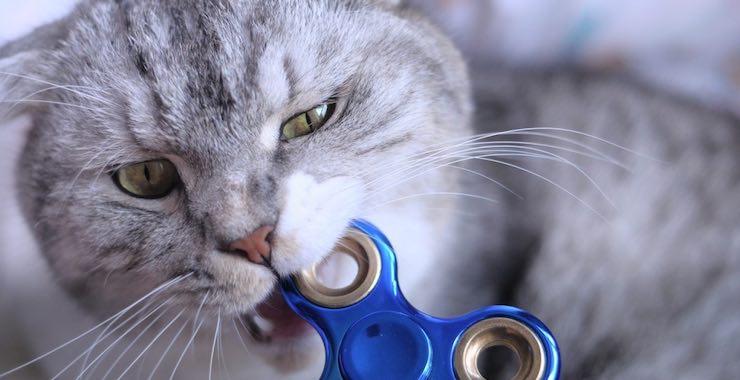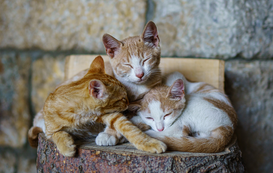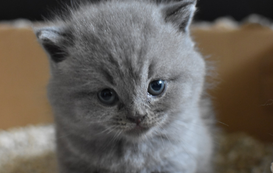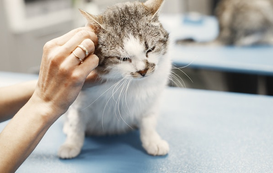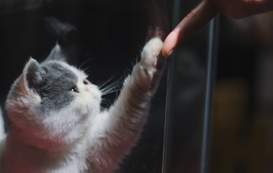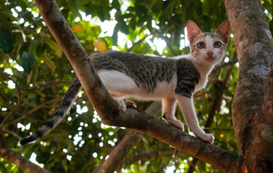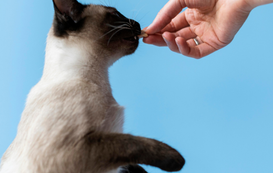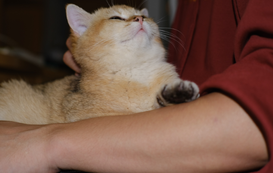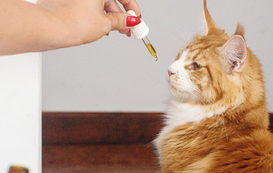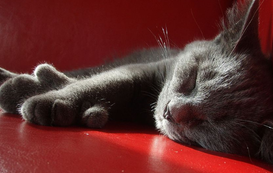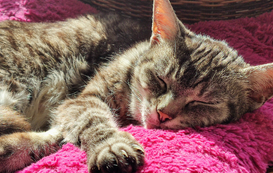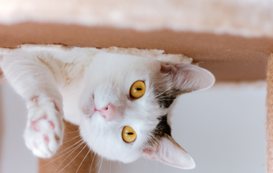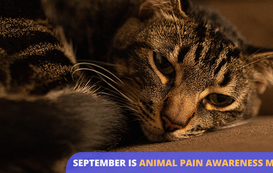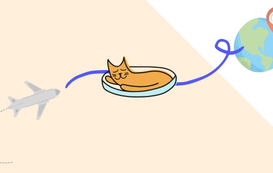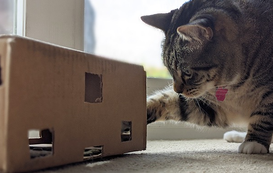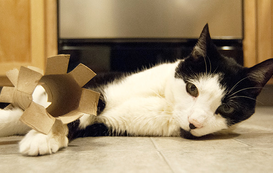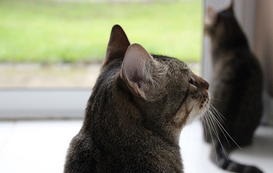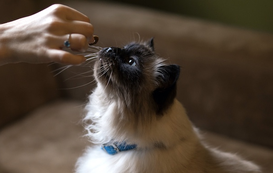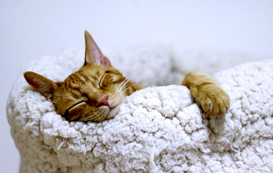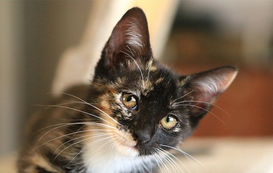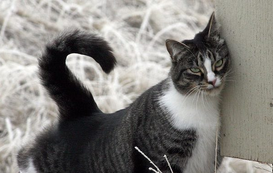"Ouch! That Hurts!"
When your cat bites you or your guest, it can be embarrassing and painful. It's important to teach your cat not to bite people. However, since biting is a natural cat instinct, it can be hard to teach them not to do it. Here are some tips for how you can change both your behavior and your cat's behavior to improve your relationship and stop biting.
Biting is a Natural Cat Instinct
As kittens, all cats, from lions to house cats, scratch, bite, and pounce and roll around with their playmates. This is important training for felines because in the wild when they grow into adults, they will need to hunt to eat. House cats do not need to hone their hunting skills, but it's natural for them to do so anyway.
Here are Five Ways to Help
When starting any training program, be sure to get your entire family on the same page. Otherwise, your cat can get the wrong signals.
You may want to consider using a clicker to help train your cat. If your cat is bored at home, training him or her with a clicker can help stimulate their mind and give them something interesting to look forward to. If you've trained your cat to come to you when you use your clicker and he or she gets out, it can help your cat be safer.
When Playing: You can help your cat get some of their natural hunting behaviors and energy out of their system by making sure they have plenty of toys, and that you actively play with them. Try a feathered wand or a laser pointer, but do not use your hand. Stop trying to play with your cat when they show a lack of interest in you or their toys. Over-stimulating your cat can make him or her want to bite, too.
Use time-outs: If you're petting or playing with your cat and he or she starts to act aggressively (lashing their tail, eyes dilated, swiping at, or biting you), stop doing whatever you are doing. Withdraw contact from your cat and walk away. This is something that cats do with each other when they're playing. It's a strong communication that what they're doing isn't okay with you. If you withdraw as soon as you start seeing aggressive behavior, your cat will learn that you understand their communication, and trust you more.
Some cats have anxiety which makes them more likely to bite. This can be caused by other pets in the home, loud noises, or any number of things. If your cat is biting you outside of playtime, your cat may be anxious. Here are some things to try to help them:
If you have multiple pets at home, consider that each pet has their own food and water bowl and that there are enough litter boxes for everyone. Many people recommend using soothing feline pheromones. There are also some cat foods with tryptophan (found in turkey) that help calm cats down as well. Some anxious kitties don't like to be pet from above. If they can't see your hand before you touch them, that can feel like an attack. Show your cat your hand and pet him or her from the side, so they can see you coming.
Reinforce Positive Behavior: Every time your furry friend shows good behavior like they play with you, or come to you outside of playtime, without biting, give him or her some positive reinforcement. Verbal praise, petting, or giving a small amount of a favorite treat can all help your pet not bite.
In Conclusion
A healthy and happy cat that trusts you will have more fun and be less likely to bite. So consider doing your best to read your cat's signs. Understanding your cat keeps you from triggering their hunting instincts. It will also help you teach him or her what's expected of them so that you and your cat can live happier stress-free lives together.
Need a break from your bitey buddy? Find a cat sitter on Meowtel today!

